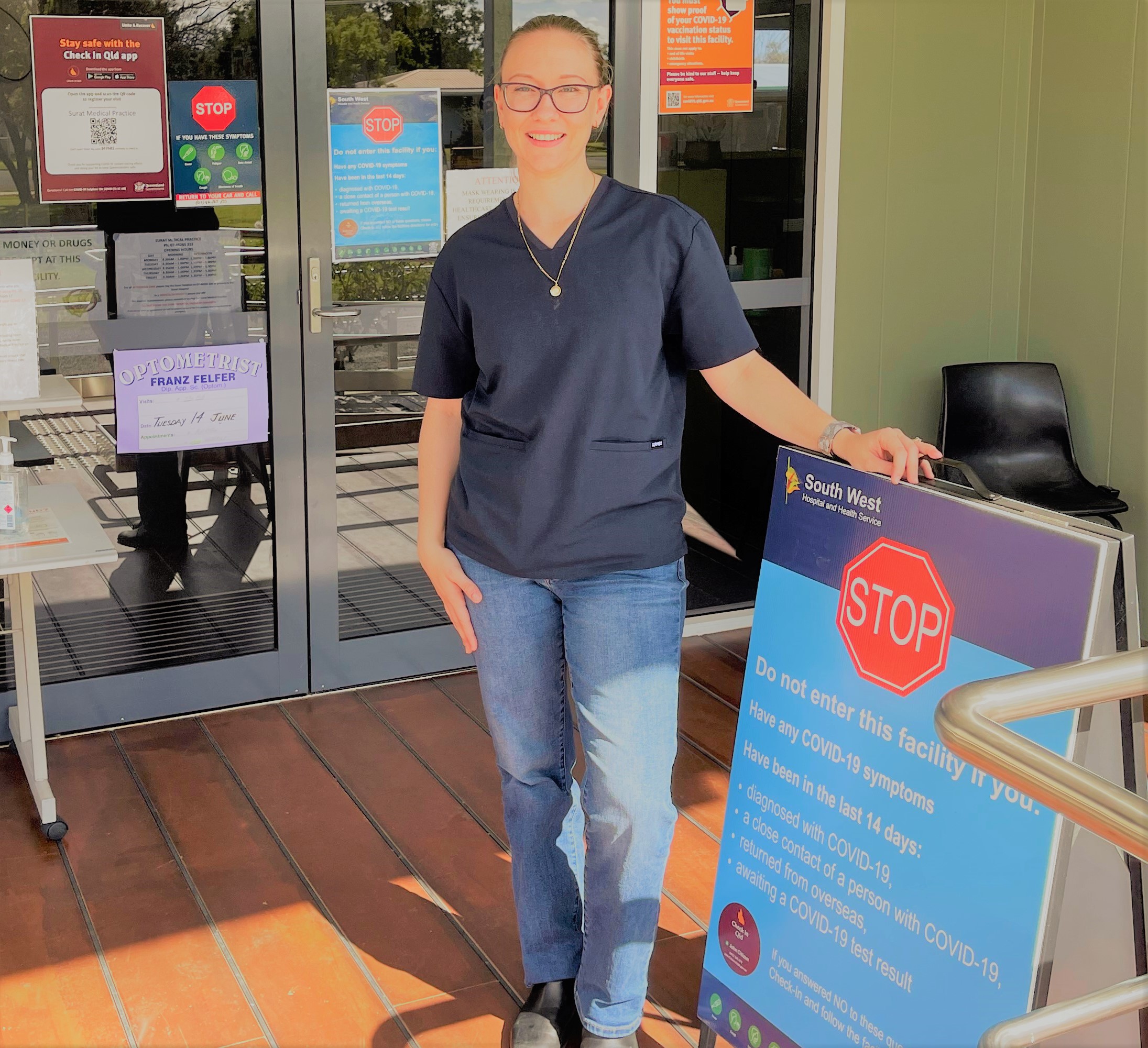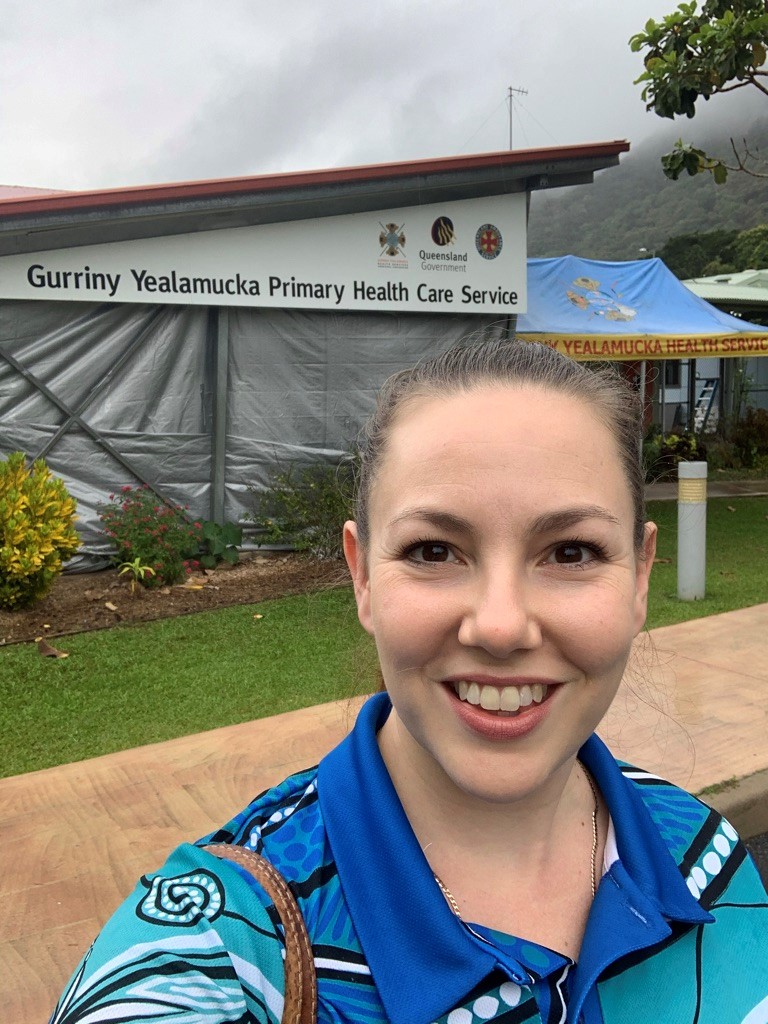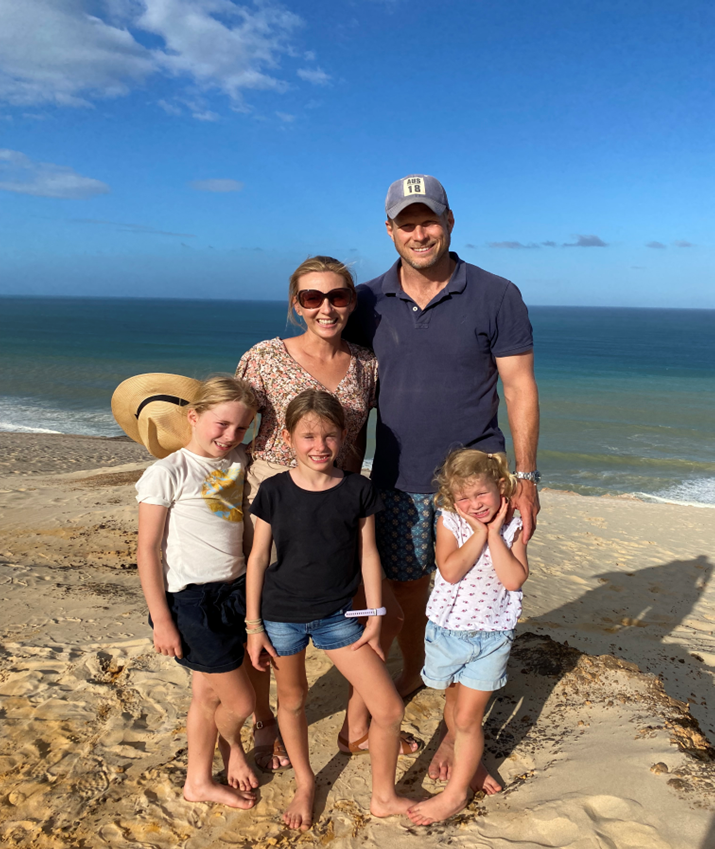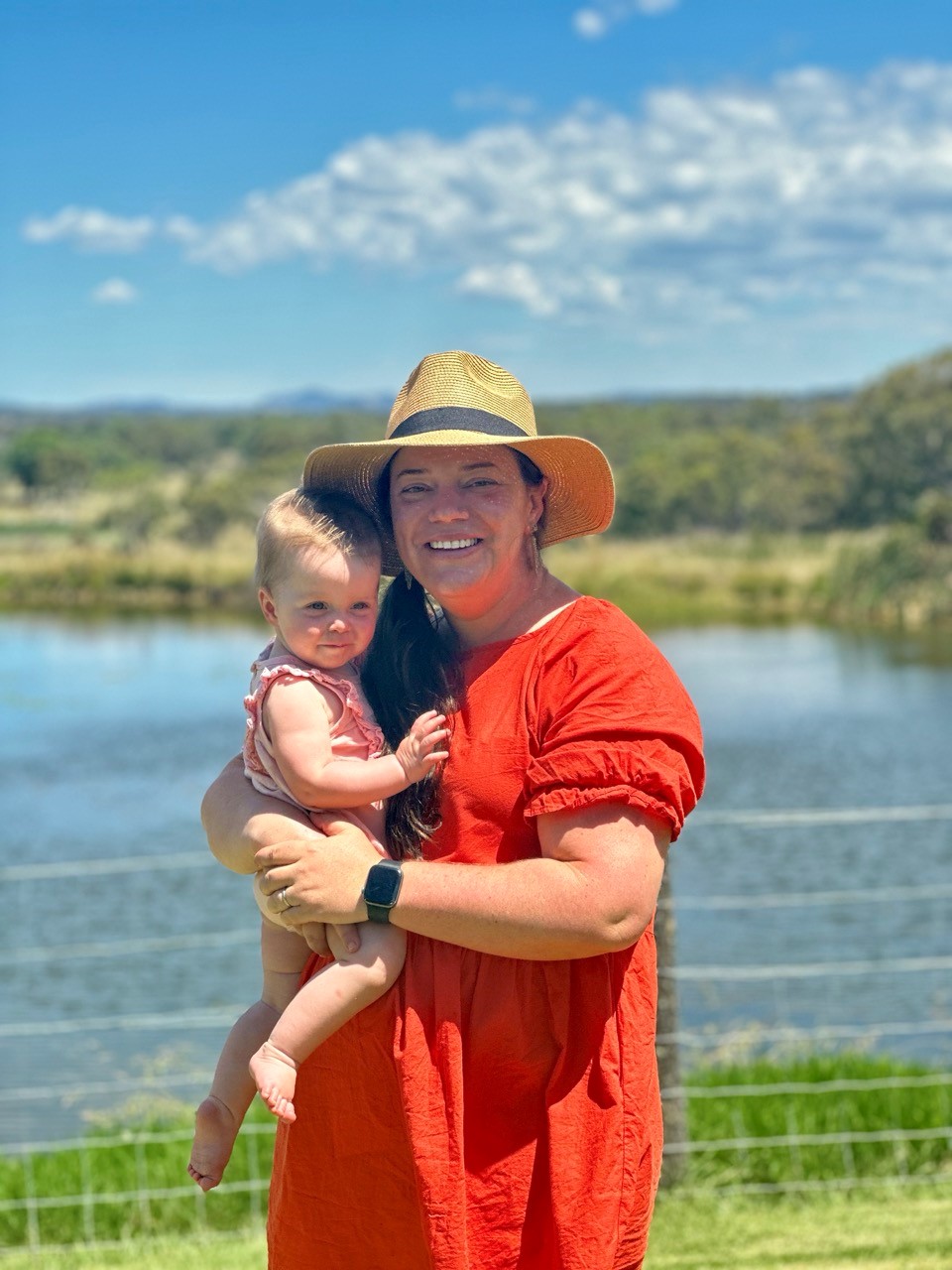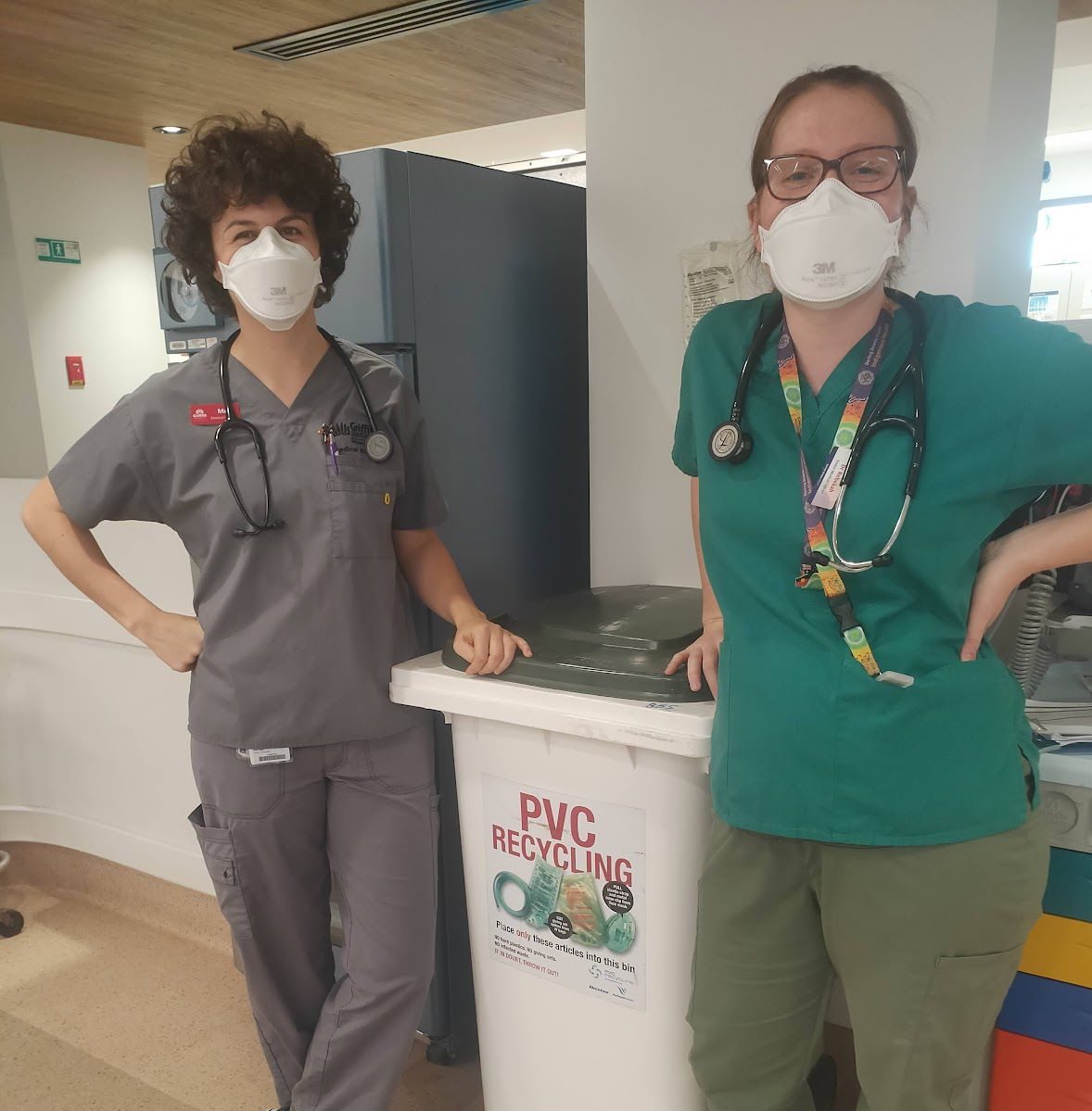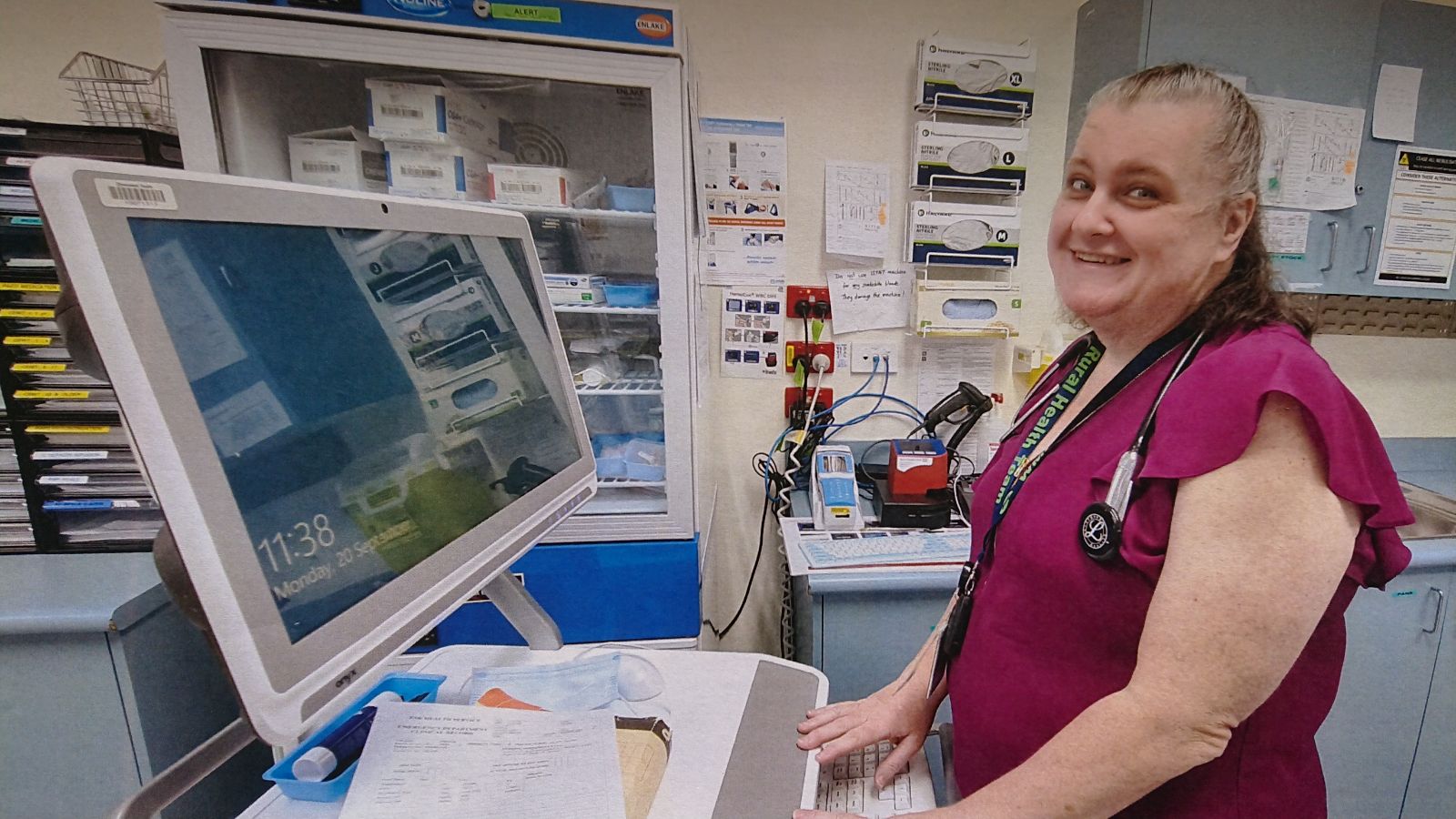Senior Medical Officer, Surat Multi-purpose Health Centre
Dr Talia Trigger is a Senior Medical Officer for Surat Multi-purpose Health Centre in the South West Hospital and Health Service. Growing up in a small rural town gave Talia a personal insight into the challenges a rural community faces without a permanent doctor in town. She knew from a young age that she wanted to study medicine and end up working in a rural town to provide quality and consistent care to her community.
Her Rural Generalist training was the perfect fit.
“It allowed me to train for all the skills I needed for this role in a streamlined manner; whilst feeling encouraged and supported in my career choice”.
When Talia accepted her role at Sural Multi-purpose Health Centre, Surat had been without a permanent doctor for over a decade.
“Getting my job in Surat all kind of just happened like it was meant to be. Whilst completing my Advanced Skills Training year, I attended RDAQ and met with my now Director of Medical Services, Dr Alan Richardson. The conversation flowed so easily and when we started discussing job opportunities, Surat came up. Admittedly, I was a bit intimidated at the idea of being in a ‘single doctor’ town, but at the same time I was excited. Working there seemed to be exactly what I had been working towards my whole career”.
Implementing creative workforce solutions have enabled small towns like Surat to recruit and retain permanent doctors. Surat now employs two permanent Senior Medical Officers who work a two-weeks-on and two-weeks-off roster.
“I currently work two-weeks-on as the primary doctor in town, followed by two-weeks-off. Before achieving Fellowship, I worked two weeks in Surat with remote supervision from my Director of Medical Services, Dr Alan Richardson, followed by several shifts in Roma Hospital mainly in emergency or on the ward. In 2020, I not only achieved Fellowship with ACRRM but gave birth to my beautiful daughter. Once I returned from maternity leave, I decided to drop my Roma shifts so I could be close to home and focus on being a mother as well”.
Life as a Rural Generalist in a small town requires flexibility. Talia really enjoys her current work-life harmony, acknowledging it can be professionally isolating working on your own at times. Trainees need to adapt to different models of training, including remote supervision. Rural Generalists, like Talia, have proven that remote supervision can be effective when undertaken carefully with strong support mechanisms in place.
“Being remotely supervised when I commenced was basically unheard of at the time. My Director of Medical Services (supervisor) and I had to thoroughly demonstrate to the Medical College, Regional Training Organisation, and Queensland Rural Generalist Pathway how this model was going to work. This included my access to support when needed, days of teaching and in person-supervision. I’d be lying if I said everyone was convinced it was going to work, but once I actually started working and demonstrating my ability to manage this alternative method, it put their minds at ease”.
Although this model would be challenging for some Registrars, Talia looks back on her training with positive thoughts. “I had such fantastic training, particularly during my emergency Advanced Skills Training year. I have become a safe, competent and independent practitioner”.
Prior to Talia arriving in Surat, the Multi-purpose Health Centre was run by locum practitioners which meant limited continuity of care for the local community.
“I genuinely believe the community is grateful for the stability with the local healthcare service. Like everywhere, it’s been tough in the past. They truly love that when they go the doctor now, it’s the same two doctors alternating. We know their story, their medical concerns, and what’s going on in their life. It makes providing good, holistic healthcare that much easier. We have seen a difference with the number of locals that are now re-engaged with the health service because of it! We have never been busier!”
The Surat Multi-purpose Health Centre provides both primary and acute care. Managing both requires Talia to be flexible and utilise support from her peers in local hospitals.
“My morning usually starts with seeing any patients in the hospital then spending the day in General Practice clinic. If any urgent cases present to ED at the hospital, we rearrange or cancel clinic appointments so I can attend to the more acute issues. The community are really understanding of this. They know I am only one person and need to manage both hospital and clinic presentations at the same time. I’m lucky the hospital and clinic are right next to each other, otherwise some days I would be getting a lot of exercise!”
After Talia finishes her afternoon at the clinic, she is on call for the evening. If she has a busy evening attending to emergencies, clinics are rescheduled the following day to allow Talia to rest and recover. “My Roma Hospital colleagues are great in this setting, in that if I’m too fatigued to work they will help support our nursing staff via the Telehealth Emergency Support Unit (TEMSU) or videoconferencing where they can. I then only attend to critical emergencies that need someone in person. Thankfully, this does not happen often”.
At this stage Talia plans to stay in Surat for a few more years, following what is best for her family and the longevity of her career.
“I truly have come to love the community and the amazing outcomes we have been able to achieve, helping our patients improve their health. It is the most rewarding feeling when you can help a person and their family through all the stages of their life – grief, illness, happiness and everything in between. I love being part of their journey, celebrating the good and holding their hand through the bad. To me, that is the most rewarding way to practice medicine and I wouldn’t want it any other way”.


